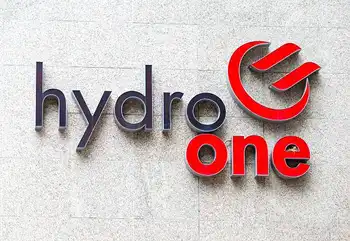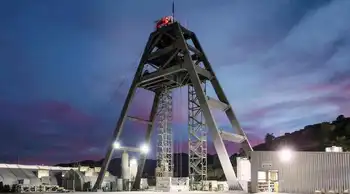California Geothermal Power Plant Approved
WASHINGTON -- - The U.S. Department of the Interior and U.S. Department of Agriculture Forest Service approved development by the Calpine Corporation of a 48-megawatt geothermal power plant at Telephone Flat, near Medicine Lake on the Modoc National Forest in Siskiyou County, California.
The approval is part of a reconsideration process involving the project. The agencies determined that the environmental analysis, conducted under provisions of the National Environmental Policy Act, was still valid. The increased national and state focus on renewable energy, along with the further mitigation measures required, justified approval of the project.
Production of electricity from the geothermal resource will help the nation take steps toward increasing domestic energy supplies, particularly from renewable sources, said Assistant Secretary of the Interior Rebecca W. Watson. "The power plant will also help California meet its legislative mandate of producing 20 percent of energy supplies from renewable energy sources by 2017. The state of California enacted legislation in September, requiring the state to double its supply of renewable resources and for retail sellers of electricity to boost their use of renewable resources by at least one per cent each year until the 20 percent target is met by 2017.
The power plant will use hot water from deep within the Earth to produce electricity for about 50,000 homes. The water will then be re-injected into the geothermal pool to be reheated and reused. Calpine projects the plant to operate for 45 years.
Calpine will be required to conduct several mitigation measures, addressing concerns raised by American Indian Tribes and others, including realigning its proposed power line to reduce visual and environmental impacts. The realignment will result in a 13-mile power line for the plant to be built east of the original proposed location, roughly paralleling existing Forest Service Road 97. The power line will not cross the Medicine Lake Area Traditional Cultural Places District, as the original power line would have, nor will it go through the Mount Hoffman inventoried roadless area, further reducing environmental impacts.
BLM is responsible for administering the geothermal lease, including the power plant, well field and associated infrastructure. The Forest Service is responsible for issuing permits necessary for power lines, pipelines and road rights-of-way on National Forest System lands.
"The project will produce renewable energy with fewer environmental impacts. The decision also fulfills the government's 20-year obligation to the leaseholder," said Forest Service Chief Dale Bosworth. "I am especially appreciative of the mitigation measures DOI is requiring within the lease area to reduce impacts on traditional cultural values and uses of the Tribes."
The decision follows extensive consultations with the affected Tribes to hear their concerns regarding the significance of the Medicine Lake Highlands as a sacred area and the manner in which the proposed development would affect this important cultural property and its use. Although the Tribes remain opposed to the project, Bureau of Land Management Director Kathleen Clarke and Chief Bosworth met personally with them, which led the agencies to seek design changes to reduce the visual and audible impacts of the project wherever possible.
Calpine will build the plant within the Glass Mountain Known Geothermal Resource Area, identified in the 1970s as a region with significant potential for development of geothermal energy. Leases for geothermal development were sold in the mid-1980s. BLM and Forest Service received proposals for the plant's development in 1996.
Related News

Ontario prepares to extend disconnect moratoriums for residential electricity customers
TORONTO - Ontario Electricity Relief outlines an extended disconnect moratorium, potential time-of-use price changes, and Ontario Energy Board oversight to support residential customers facing COVID-19 hardship and bill payment challenges during the emergency in Ontario.
Key Points
Plan to extend disconnect moratorium and weigh time-of-use price relief for residential customers during COVID-19.
✅ Extends winter disconnect ban by 3 months
✅ Considers time-of-use price adjustments
✅ Requires Ontario Energy Board approval
The Ontario government is preparing to announce electricity relief for residential electricity users struggling because of the COVID-19 emergency, according to sources.
Sources close to…




